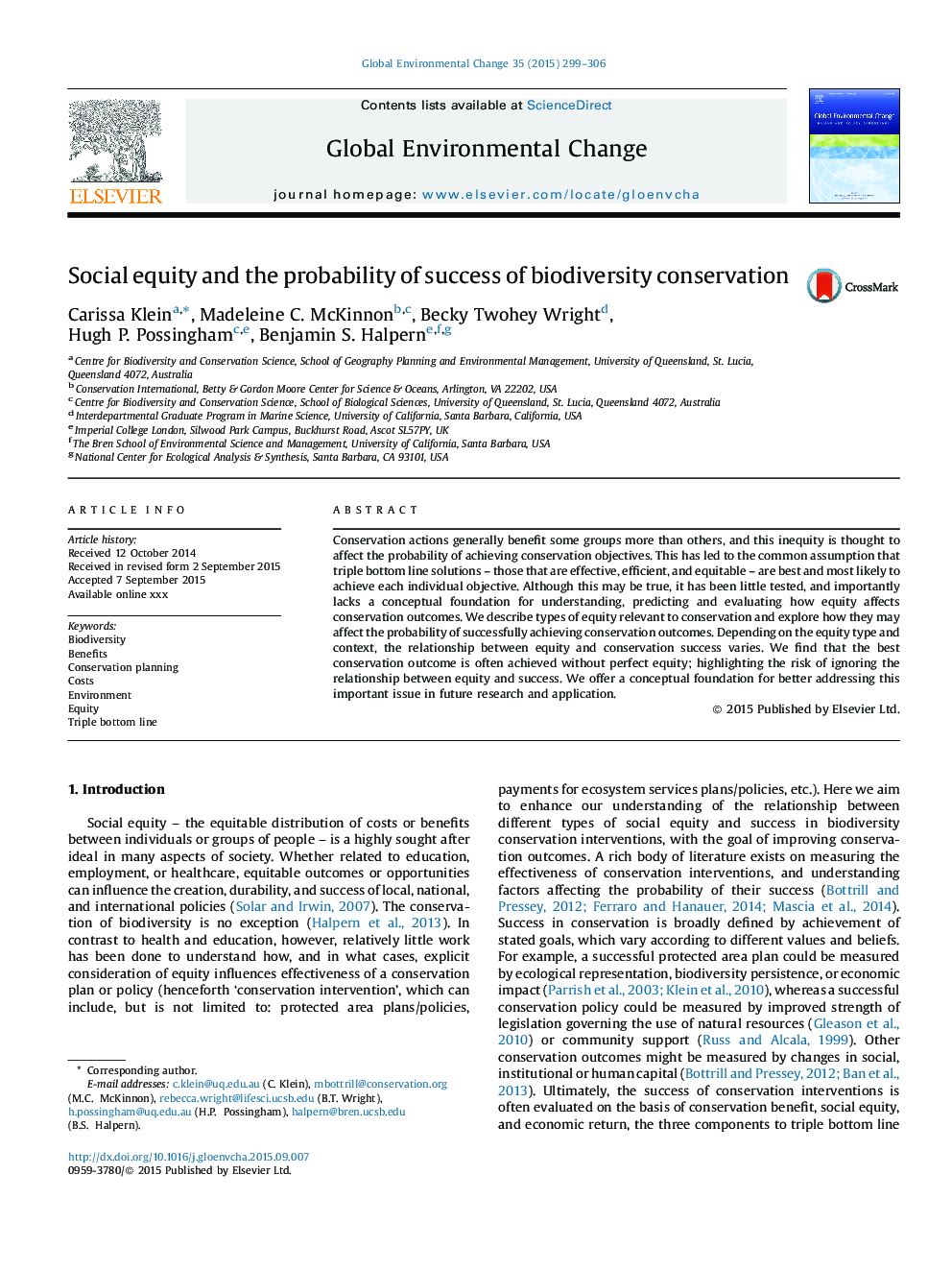| Article ID | Journal | Published Year | Pages | File Type |
|---|---|---|---|---|
| 7469702 | Global Environmental Change | 2015 | 8 Pages |
Abstract
Conservation actions generally benefit some groups more than others, and this inequity is thought to affect the probability of achieving conservation objectives. This has led to the common assumption that triple bottom line solutions - those that are effective, efficient, and equitable - are best and most likely to achieve each individual objective. Although this may be true, it has been little tested, and importantly lacks a conceptual foundation for understanding, predicting and evaluating how equity affects conservation outcomes. We describe types of equity relevant to conservation and explore how they may affect the probability of successfully achieving conservation outcomes. Depending on the equity type and context, the relationship between equity and conservation success varies. We find that the best conservation outcome is often achieved without perfect equity; highlighting the risk of ignoring the relationship between equity and success. We offer a conceptual foundation for better addressing this important issue in future research and application.
Related Topics
Life Sciences
Environmental Science
Environmental Science (General)
Authors
Carissa Klein, Madeleine C. McKinnon, Becky Twohey Wright, Hugh P. Possingham, Benjamin S. Halpern,
